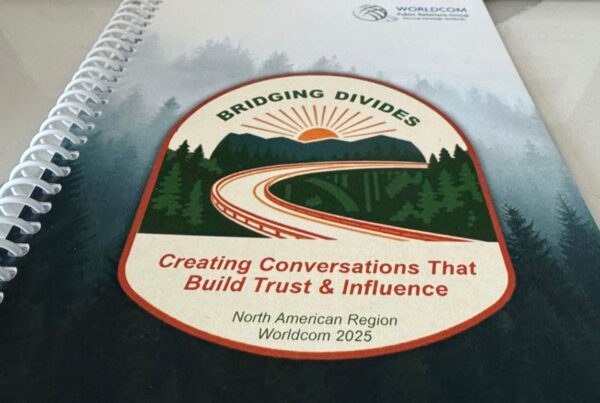This article was initially published by Forbes.
In today’s world, attention is everything. It fuels engagement, drives sales and determines whether a brand thrives or fades into irrelevance. But here’s the problem: Attention is finite. Humans can only focus for a certain amount of time, and in the age of 10-second TikTok videos, that window is significantly shrinking. Brands are in a race against time. While we can create more content, we can’t create more time to engage with it. Every second your audience spends elsewhere is a second they’re not spending on you. In short, every interaction counts.
Welcome to the reality of the attention economy. Brands aren’t just competing with industry rivals; they’re competing with every scroll, every notification and every algorithm that decides what someone sees first. The average person’s daily screen time is staggering, yet brands still struggle to break through.
Why? Most are fighting for attention incorrectly by adding noise instead of adding value.
The brands that win aren’t the loudest. They’re the ones that understand attention must be earned, not taken.
The Harsh Reality: You’re Competing With Everything
Many brands assume their biggest competitors are industry peers. In reality, they’re competing against a never-ending digital feed filled with AI-curated content and an endless supply of instant gratification from viral memes and must-have product ads.
But how do you stop the scroll? Attention spans are shrinking, and with the temptation to tune out and mindlessly absorb content online, users scroll away the second something feels irrelevant. Yet some brands manage to break through, not by shouting louder, but by making their presence feel indispensable.
Take Spotify’s AI-driven discovery, for instance. Instead of forcing users to sift through millions of songs, the platform delivers music users will likely love before searching for it.
Or consider how Nike focuses on storytelling over selling, crafting narratives that make consumers feel part of something bigger.
This is where real engagement happens, not through demanding attention but by making life easier, better or more meaningful.
The AI Factor: Giving Time Back To Earn More Attention
Since brands can’t create more time, the smartest ones return it. Increasingly, AI is enabling companies to remove friction. Google Maps, for instance, doesn’t just provide directions; it uses AI to predict traffic and optimize routes to save time. ChatGPT doesn’t just supply information; it synthesizes insights immediately, cutting through the noise of traditional search. The brands that understand how to use AI to enhance consumer experiences, not replace them, can dominate the future of attention.
But using advanced technology alone isn’t enough. You have to use AI strategically to enhance brand engagement. AI should amplify human creativity, not replace it.
How Brands Can Capture (And Keep) Attention
To succeed in the attention economy, you must rethink how and when you engage and what value your brand brings. It’s no longer about getting seen but becoming what consumers want.
Take TikTok, for example. The social media platform thrives because it forces brands to hook audiences within seconds or lose them forever. Or consider Apple—instead of relying on traditional ads, the company has mastered creating events that feel like cultural moments. Every product launch becomes a must-watch spectacle, not because Apple forces attention but because it has conditioned audiences to expect something worth engaging with.
On the other hand, Google’s AI-powered search doesn’t interrupt people’s lives; it anticipates their needs and delivers solutions instantly. In doing so, Google has built a personalized ecosystem where attention isn’t demanded but naturally given because the brand consistently provides value.
The winners in the attention economy won’t be the brands spending the most on ads or pushing content across every channel. They’ll be the ones who understand what their audience truly values and build around it.
So, can you do this? The special sauce consists of a balance of empathy, clarity and speed. First and foremost, products and content that evoke an emotion resonate with consumers. Use storytelling and authentic voices to convey your brand’s message. Whether through humor, nostalgia or something else, tapping into your audience’s minds and hearts will boost the chances of them remembering your brand. Additionally, ensure the story you’re telling is clear and concise. Creativity is excellent; consumers love high-impact visuals, but only when they can fully understand what message your brand is attempting to deliver. Lastly, the best idea won’t matter if your team isn’t quick to execute. Jump on topical news trends or cultural moments before competitors to capture consumers’ attention. Act fast.
AI is an ally, not an enemy. Treat technology as a member of the creative team to brainstorm and analyze ideas, but leave the emotion and brand voice to humans. AI works wonders when you’re researching competitors and provides valuable insight into audience behavior and industry trends. But you shouldn’t rely on technology to showcase emotional intelligence. Leave it to the professionals.
Now, for the golden question: How can you garner consumers’ attention and make their lives easier? That’s simple. Don’t just sell to them; solve for them. What real-life problems is your brand or product solving? When companies shift messaging from “buy this” to “here’s how this will change your life,” people notice. The most successful brands, like Spotify and Google, act like problem solvers, not salespeople.
The Final Thought: Attention Is Earned, Not Taken
Brands aren’t just competing for attention but for trust, loyalty and influence. Companies that attempt to steal attention without offering value will be ignored. Those who earn attention by making life easier, exciting or meaningful will be rewarded.
So ask yourself: Would your audience notice if your brand disappeared tomorrow? Would they feel its absence, or would their day improve without it?
In the attention economy, relevance isn’t a given; it’s a daily battle. So keep fighting.






